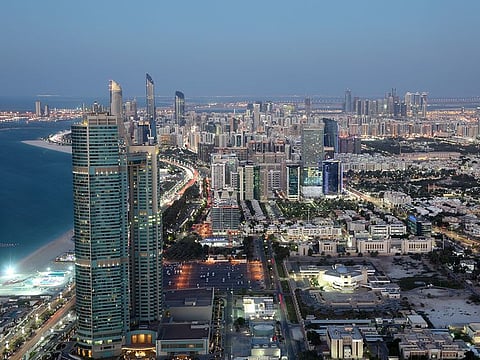Gulf states must take advantage of UK’s final exit
Time is right for far-reaching free trade deals with UK and EU

After nearly five years of give-and-take in the “Cold War” between the European Union and the UK, a Brexit deal was finally signed, bringing the curtain down on one of the most complex issues confronting Europe.
There is no doubt this will leave a deep impact not only on remaining EU member-states but on the trade and economic relations with the UK on the one side and with other countries and economic blocs on the other side, including those with the GCC. The signs of such new relationships have begun to appear as soon as the announcement of the signing of the exit agreement was made at the final moments of last year.
Over the past 30 years, the EU’s economic relations with the GCC countries have experienced a lot of tension due to the EU’s insistence on imposing discriminatory duties against Gulf exports, especially aluminum and petrochemical products. And all this despite GCC attempts to resolve such difficulties through compromises.
However, Brussels maintained its inflexible position right through.
Better leverage
With the UK’s exit from the EU, the GCC states have better negotiating positions concerning relations with the EU and UK, something which has been exploited by other countries, through free trade deals with Britain and have their products easily access the British market in exchange for similar privileges for UK exports.
Right from the time it became clear the UK was leaving the EU, the GCC has expressed a desire for a free trade agreement with London. Several rounds of negotiations have taken place, but, unfortunately, these have not yet culminated with an agreement. Many unfavorable developments taking place in the Gulf and Britain have contributed to delaying any possible deal.
No room for distractions
Therefore, the two parties, especially the Gulf states, must make a determined push to get that treaty signed, which will have significant gains for both sides.
It is because GCC states now more then ever need faster and smoother access to more markets after the remarkable progress achieved by non-oil sectors, especially aluminum and consumer goods. At the same time, the Brexit move could see difficulties creep into goods and services flow between the UK and EU countries despite the free trade provisions in the deal.
This means the UK need markets that can provide its products access, which will happen as soon as it signs a free trade agreement with the GCC. By doing so, British-made goods will enjoy greater competitive capabilities compared to the EU.
Softening in attitude?
In return, this would grant the GCC countries additional negotiating power with the 27 countries still under the banner of the EU. This power can be taken advantage of by the GCC states to reach a similar free trade agreement with Brussels, which may see itself forced to make concessions on some of their hardline positions of the past.
Apart from that, the rules of the game have now changed and the EU is going through its worst times since its establishment for several reasons, including that created by the pandemic.
Therefore, the GCC General Secretariat needs to take swift action, especially since the UK previously announced its desire to sign a free trade deal with the Gulf states. Any delay may create new complications, especially as global developments are in continuous flux.
The chambers of commerce and industry in the Gulf countries and the Federation of Gulf Chambers can play a role in speeding up trade deals with Britain and the EU. These entities represent private sector interests, which are quite interested in expanding their overseas reach, especially with the UK.
- Mohammed Al Asoomi is a specialist in energy and Gulf economic affairs



